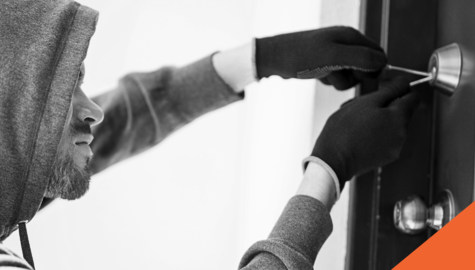What to Do if You Hit a Deer with Your Car
Thursday, 25 July 2024
Our Canadian landscape is filled with beautiful wildlife, but as cities grow larger and highways continue to expand, we encroach on the natural habitat of many of these animals. This means the wildlife we work to protect are more frequently finding their way into developed areas and onto our roads.
It’s important to know what to look out for on the roads to ensure your safety and avoid a collision with wildlife. In this blog, we will share some tips on what to do if you hit a deer, how to reduce your risk of a wildlife collision, and how an accident with a wild animal could impact your insurance.
WILDLIFE COLLISION: THE FACTS
- The majority of collisions with wildlife take place on rural, two-lane roads.
- Collisions often happen near a water source, habitat, or a place where deer forage near the roadside.
- The peak time of day for these collisions is between 7 pm and midnight.
- Collisions are highest when light and visibility levels are lower, as animals are typically more active at dusk and dawn.
- Wildlife collisions spike during autumn (October-December) and spring (May and June) but can still occur at any time of the year.
HOW TO AVOID HITTING WILDLIFE WITH YOUR CAR
While it’s important to know what to do if you hit a deer with your car, knowing how you can help prevent it from happening in the first place is equally as important. There are some steps you can take to try to avoid hitting a deer with your car or other wildlife that may appear on the road. Here are some things you can implement into your regular driving habits:
Learn About Animal Behaviour: Wild animals have a fight-or-flight response and react unpredictably in unsafe situations. Animals will unexpectedly bolt or jump across the road. Deer, moose, and bears travel in groups, meaning if one crosses the road, more may follow.
Look for Wildlife Crossing Signs: This typically includes yellow diamond-shaped signs, often with an image of a deer or other animal. These signs remind us to stay alert and look out for wildlife in these areas.
Watch Your Speed: The one thing a motorist can do to reduce the risk of a wildlife collision is to slow down. You will have more time to react appropriately in braking or steering away from unexpected objects. It will also reduce the force of impact and injury in the event of a collision.
Use Defensive Driving Techniques: Pay attention to your surroundings and anticipate the actions of those around you, including wildlife. Look out for animals on the road, shoulder, or along the side of the road. Shining eyes may indicate your headlights are reflecting off an animal’s eyes.
If an animal suddenly runs out onto the road, fix your eyes on where you want your vehicle to go, not on the animal. Aim for where the animal is coming from rather than where it’s going.
Avoid swerving or taking other evasive actions. Swerving into oncoming traffic or leaving the road may cause a more serious collision and greater injury.
Brake firmly, hold onto your steering wheel, and come to a controlled stop. Before you resume driving, check the area to see if any other animals are nearby or attempting to cross the road.
WHAT TO DO IF YOU HIT A DEER WITH A CAR
Getting into any accident can make you wonder what to do. If you’ve collided with a deer and thought, “I hit a deer, what do I do?” you can follow these steps to ensure you’re taking care of everything you should. Even if you’re alert and follow the steps to avoid a wildlife collision, you may still hit a deer with your car. Try not to panic and take it one step at a time. If this happens to you, here’s what to do if you hit a deer or any other animal with a car:
- Move your vehicle to the side of the road if it’s safe to do so.
- Turn on your hazard lights and stay off the road.
- Call the police or the Ministry of Natural Resources to alert them of the accident. You may also need to fill out an official report, which may prove helpful when you file an insurance claim.
- Document the incident by taking photos of the roadway, vehicle damage, and injuries. Collect contact information from any witnesses.
- Stay away from the animal. When injured, an animal is more likely to panic when approached by humans and harm you. If the animal is injured, you can call your local humane society, or wildlife rehabilitation centre
- Contact your insurance broker. If you’re a BIG customer, use our 24/7 claims line at 1-866-670-0905.
DOES MY INSURANCE COVER ME IF I HIT A DEER WITH A CAR?
Figuring out what to do if you hit a deer will often depend on the type of insurance you have. While liability insurance is a requirement, collision and comprehensive coverage are not mandatory. You will need to speak with your broker to find out if you have coverage if you hit a deer or other wildlife with your car.
If you have comprehensive coverage when you hit a deer with a car, your claim will likely be covered by your insurer. Comprehensive coverage helps to cover damage to your car from unpredictable, random incidents such as broken glass, theft, fire, vandalism, and if you hit a deer.
If you hit a tree or a fence to avoid hitting the deer, your claim could be filed under a collision claim and may have more adverse effects on your insurance record. It’s important to note that some other wildlife collisions (hitting a coyote, for example) may be considered an at-fault collision claim and would require collision coverage.
DO YOU HAVE TO PAY A DEDUCTIBLE IF YOU HIT A DEER?
When you select your insurance coverage with a broker, a deductible is set for collision and comprehensive coverage. A deductible is an amount you agree to pay out of pocket towards a covered claim.
Your individual policy will dictate whether you must pay a deductible; however, if you have comprehensive coverage, you will most likely have a deductible that will need to be paid. Your insurance company will then cover the rest of the damage after you have paid the deductible. If you hit a deer and your car is totalled, your comprehensive coverage limit will dictate the maximum amount your policy will pay out to help you replace your vehicle.
IS HITTING A DEER AN AT-FAULT ACCIDENT?
If you hit a deer with your car, it will be considered a comprehensive claim. Any comprehensive claim does go on your record but generally will not affect your premiums as you are not at fault. If you end up with a high frequency of not-at-fault claims, your insurer may require that you increase your deductible to cover the cost of the damage. Generally speaking, at-fault claims can increase your insurance premiums more adversely unless you have accident forgiveness.
IS IT ILLEGAL TO HIT A DEER AND DRIVE OFF?
If you’re curious about what happens if you hit a deer and don't call the police, it can get tricky. When the vehicle damage exceeds a certain amount, you’re required to contact the authorities and file a police report. It’s also important to contact the police after deer collisions if the deer is injured or in the middle of the road because it poses a risk to other drivers. Your insurance broker may also require you to report the car accident and record the details of the scene to receive compensation for everything from broken lights and loose parts to a totalled vehicle.
If you’re unable to contact the police immediately after the accident, make sure to file a report as soon as you can safely do so.
At BIG, we recognize the importance of staying protected on the roads no matter where they take you and can help you figure out exactly what to do when you hit a deer, at least in terms of insurance. Even when you follow all of the steps to reduce your risks, accidents still happen, and you want the peace of mind of quality coverage at an affordable price.
To get a no-obligation auto insurance quote, contact us to connect with a trusted BIG broker and ensure you have comprehensive coverage in the event that you hit a deer with your car!



